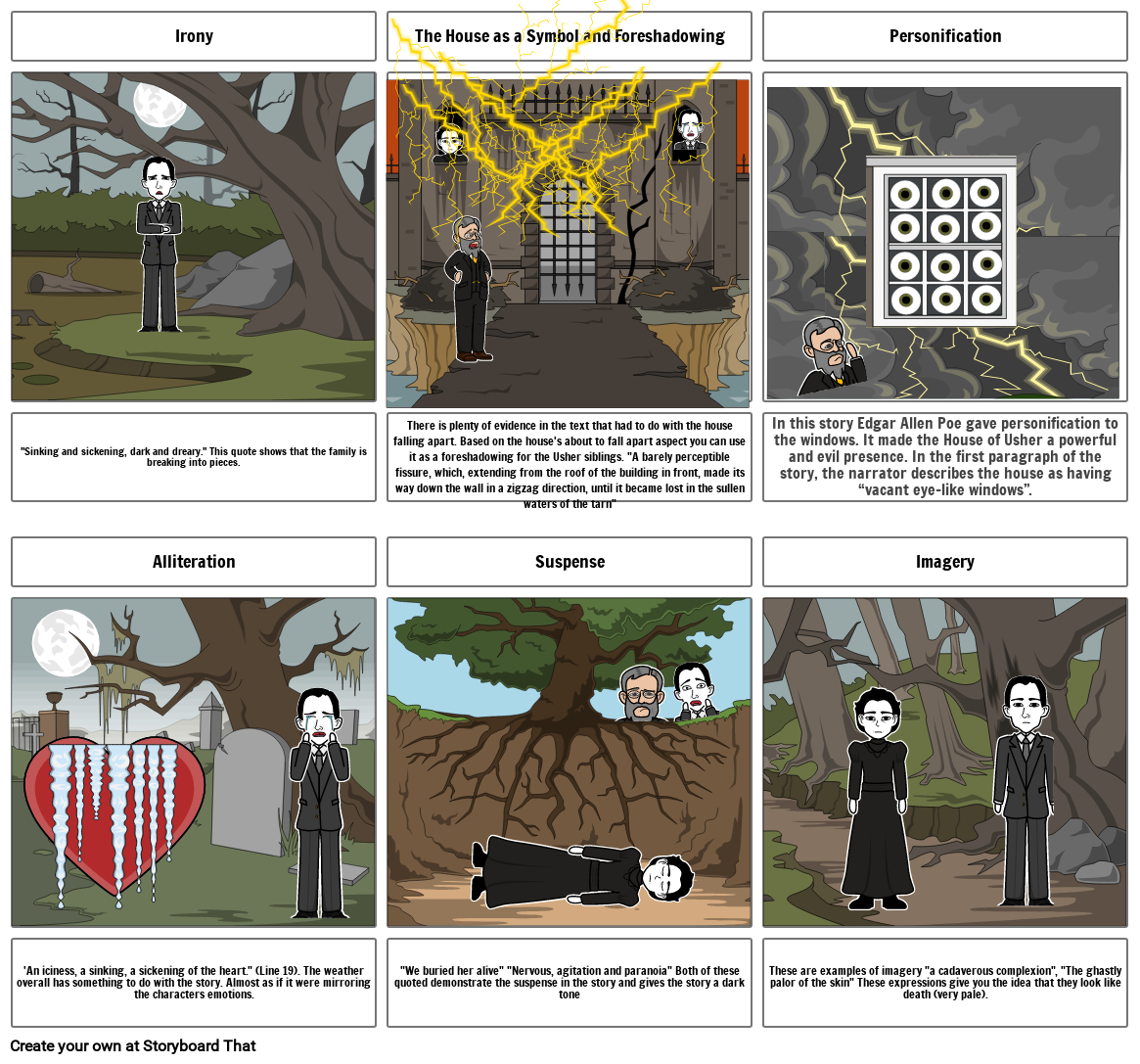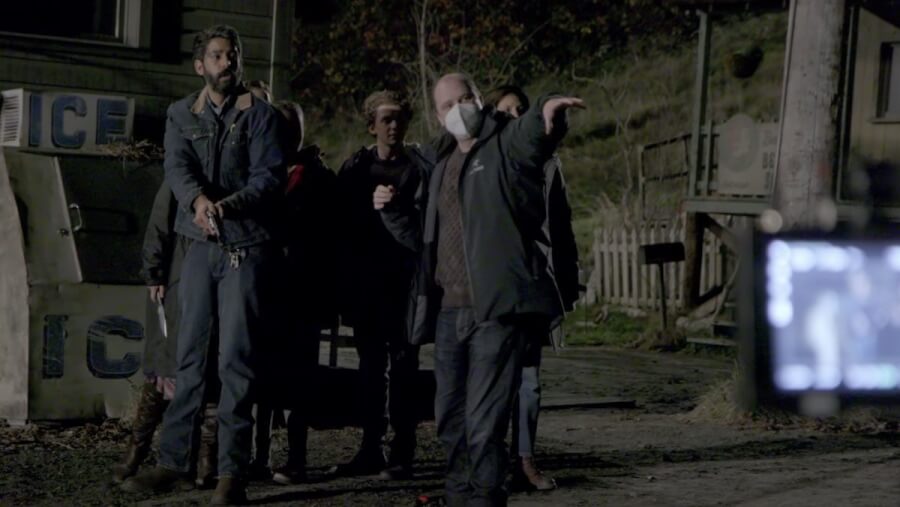Table Of Content

La Chute de la maison Usher is a 1928 silent French horror film directed by Jean Epstein starring Marguerite Gance, Jean Debucourt, and Charles Lamy. A storm begins, and Roderick comes to the narrator's bedroom (which is situated directly above the house's vault) in an almost hysterical state. Throwing the windows open to the storm, Roderick points out that the lake surrounding the house seems to glow in the dark, just as Roderick depicted in his paintings, but there is no lightning or other explainable source of the glow. It is revealed that Roderick's sister, Madeline, is also ill and falls into cataleptic, deathlike trances.

Category:Films based on The Fall of the House of Usher
Knowing Fortunato will never be hers, Tamerlane carves a path of her own in the health and wellness world, with her strategically picked fitness influencer husband by her side. Spent most of my life in various parts of Illinois, including attending college in Evanston. I have been a life long lover of pop culture, especially television, turned that passion into writing about all things entertainment related. When I'm not writing about pop culture, I can be found channeling Gordon Ramsay by kicking people out the kitchen.
Midnight Mass: a truly great show I never want to watch again - The Guardian
Midnight Mass: a truly great show I never want to watch again.
Posted: Tue, 19 Jul 2022 07:00:00 GMT [source]
Top cast
This is just one of the many exciting shows on the October 2023 TV schedule. In exchange for this protection, both Roderick and Madeline had to consent to the bargain that at the end of Roderick's life, just before he was fated to die anyway, his entire bloodline would die with him. Roderick and Madeline would also have to die at the same time, leaving this world the same way they came into it. The siblings agreed to the deal, left the bar, and soon after became convinced that the whole thing had been a shared delusion.
Edgar Allan Poe
Netflix's Pain Hustlers True Story, Explained: The Real Scandal of Insys Therapeutics - ELLE
Netflix's Pain Hustlers True Story, Explained: The Real Scandal of Insys Therapeutics.
Posted: Fri, 27 Oct 2023 07:00:00 GMT [source]
“The Fall of the House of Usher” stands as one of Poe’s most popular and critically examined stories. The narrator and Roderick place her in a tomb despite her flushed, lively appearance. In the tale's conclusion, Madeline escapes from the tomb and returns to Roderick, scaring him to death. No sooner had these syllables passed my lips, than—as if a shield of brass had indeed, at the moment, fallen heavily upon a floor of silver—I became aware of a distinct, hollow, metallic and clangorous, yet apparently muffled reverberation. Completely unnerved, I leaped to my feet; but the measured rocking movement of Usher was undisturbed. His eyes were bent fixedly before him, and throughout his whole countenance there reigned a stony rigidity.
The worldly reason, however, assigned for this singular proceeding, was one which I did not feel at liberty to dispute. The brother had been led to his resolution, so he told me, by consideration of the unusual character of the malady of the deceased, of certain obtrusive and eager inquiries on the part of her medical men, and of the remote and exposed situation of the burial ground of the family. I will not deny that when I called to mind the sinister countenance of the person whom I met upon the staircase, on the day of my arrival at the house, I had no desire to oppose what I regarded as at best but a harmless, and by no means an unnatural precaution.
Much that I encountered on the way contributed, I know not how, to heighten the vague sentiments of which I have already spoken. His countenance, I thought, wore a mingled expression of low cunning and perplexity. The valet now threw open a door and ushered me into the presence of his master. Nevertheless, in this mansion of gloom I now proposed to myself a sojourn of some weeks. Its proprietor, Roderick Usher, had been one of my boon companions in boyhood; but many years had elapsed since our last meeting. A letter, however, had lately reached me in a distant part of the country—a letter from him—which, in its wildly importunate nature, had admitted of no other than a personal reply.
The House of Usher (2006 film)
As he relates the shield falling from off the wall, a hollow metallic reverberation can be heard throughout the house. At first, the narrator ignores the noises, but Roderick becomes increasingly hysterical. Roderick eventually declares that he has been hearing these sounds for days, and that they are being made by his sister, who was in fact alive when she was entombed. The Fall of the House of Usher is a 1950 British horror film directed by Ivan Barnett and starring Gwen Watford in her film debut, with Kaye Tendeter and Irving Steen. It is an adaptation of the 1839 short story of the same title by Edgar Allan Poe. At the request of Usher, I personally aided him in the arrangements for the temporary entombment.
Roderick and Madeline are the only remaining members of the Usher family. "You must not—you shall not behold this!" said I, shudderingly, to Usher, as I led him, with a gentle violence, from the window to a seat. "These appearances, which bewilder you, are merely electrical phenomena not uncommon—or it may be that they have their ghastly origin in the rank miasma of the tarn. Let us close this casement—the air is chilling and dangerous to your frame. Here is one of your favorite romances. I will read and you shall listen;—and so we will pass away this terrible night together." Our books—the books which, for years, had formed no small portion of the mental existence of the invalid—were, as might be supposed, in strict keeping with this character of phantasm. We pored together over such works as the Ververt et Chartreuse of Gresset; the Belphegor of Machiavelli; the Heaven and Hell of Swedenborg; the Subterranean Voyage of Nicholas Klimm by Holberg; the Chiromancy of Robert Flud, of Jean D’Indaginé, and of De la Chambre; the Journey into the Blue Distance of Tieck; and the City of the Sun of Campanella. One favorite volume was a small octavo edition of the Directorium Inquisitorium, by the Dominican Eymeric de Cironne; and there were passages in Pomponius Mela, about the old African Satyrs and Œgipans, over which Usher would sit dreaming for hours.
Episode Guide
His chief delight, however, was found in the perusal of an exceedingly rare and curious book in quarto Gothic—the manual of a forgotten church—the Vigiliae Mortuorum secundum Chorum Ecclesiae Maguntinae. And all with pearl and ruby glowingWas the fair palace door,Through which came flowing, flowing, flowing,And sparkling evermore,A troop of Echoes whose sweet dutyWas but to sing,In voices of surpassing beauty,The wit and wisdom of their king. The initial project announcement of The Fall of the House of Usher revealed that Mike Flanagan would direct four episodes and Michael Fimognari would direct the other four episodes. On Twitter, Mike Flanagan announced that The Fall of the House of Usher would feature the largest ensemble in his production company’s history. The first actors announced were Frank Langella, Carla Gugino, Mary McDonnell, Carl Lumbly, and Mark Hamill.
But, in his disordered fancy, the idea had assumed a more daring character, and trespassed, under certain conditions, upon the kingdom of inorganization. I lack words to express the full extent or the earnest abandon of his persuasion. The belief, however, was connected (as I have previously hinted) with the gray stones of the home of his forefathers. Its evidence—the evidence of the sentience—was to be seen, he said (and I here started as he spoke), in the gradual yet certain condensation of an atmosphere of their own about the waters and the walls. The result was discoverable, he added, in that silent, yet importunate and terrible influence which for centuries had molded the destinies of his family, and which made him what I now saw him—what he was. For several days ensuing her name was unmentioned by either Usher or myself; and during this period I was busied in earnest endeavors to alleviate the melancholy of my friend.
His countenance was, as usual, cadaverously wan—but, moreover, there was a species of mad hilarity in his eyes—and evidently restrained hysteria in his whole demeanor. His air appalled me—but anything was preferable to the solitude which I had so long endured, and I even welcomed his presence as a relief. The disease of the lady Madeline had long baffled the skill of her physicians. A settled apathy, a gradual wasting away of the person, and frequent although transient affections of a partially cataleptical character, were the unusual diagnosis.
As Philip is preparing to leave following the entombment, the butler, Bristol (Harry Ellerbe), lets slip that Madeline suffered from catalepsy. Roderick Usher is a gifted poet and artist, whose talents the narrator praises before sharing a poem Usher wrote, titled ‘The Haunted Palace’. The ballad concerns a royal palace which was once filled with joy and song, until ‘evil things’ attacked the king’s palace and made it a desolate shadow of what it once was. Contemporary readers and critics interpreted the story as a somewhat sensationalized account of Poe’s supposed madness. (As a recluse, Poe often invited such accusations.) Later scholarship pursued alternative interpretations.
No comments:
Post a Comment